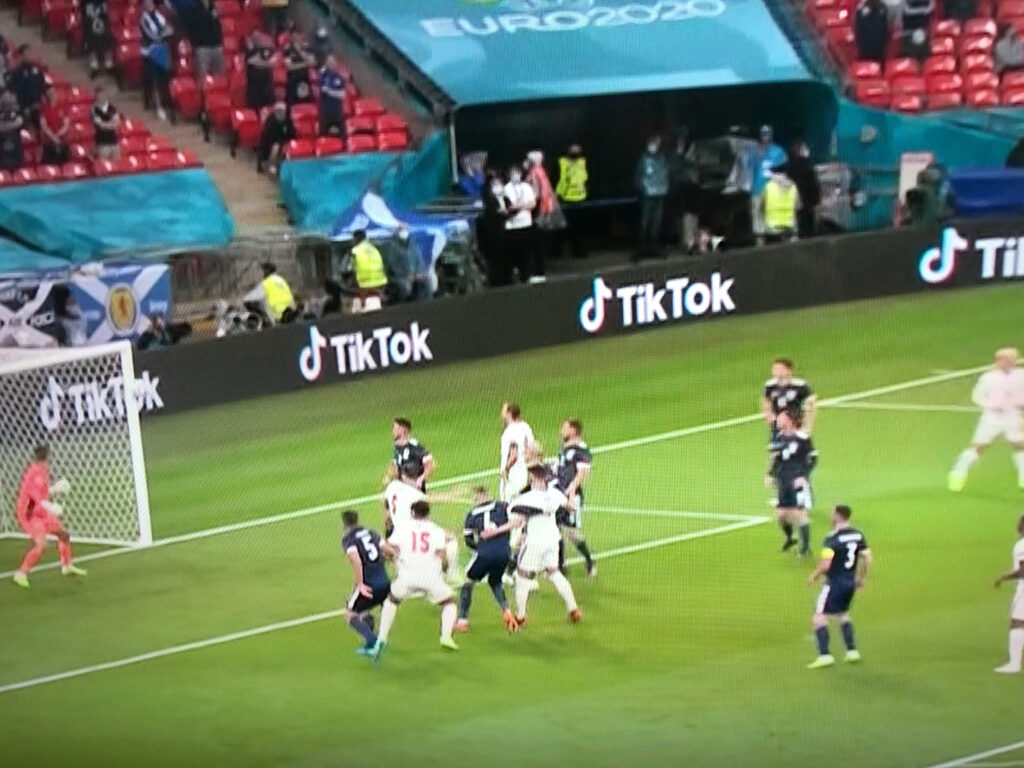You probably noticed that there was a much-hyped football match on the telly on Friday evening; well, it was at Wembley Stadium if you had tickets permitting you to be part of the covid-restricted live attendance. The oldest international football fixture in the world is England v Scotland and, on the other side of the weekend just gone, it was played out as part of Euro 2020 which, because of the virus, is being played around Europe in 2021.
I have been to this match once, in April 1967, when Scotland arrived at Wembley to tackle the auld enemy, this less than a year after England had won the World Cup. Scotland had never previously won at Wembley. This time they won 3-2, thereby causing some good-natured ribbing (OK, forget about the good-natured bit) that Scotland were now the de facto world champions. Certainly the England team was top-notch. The only difference from the side that had beaten West Germany at Wembley the previous July was Jimmy Greaves in for Roger Hunt, which in many eyes would have made this England 11 a stronger selection. Denis Law opened the scoring for Scotland in the first half, Bobby Lennox made it 2-0 after 78 minutes, and then three goals arrived in a rush towards the end: Geoff Hurst and Jack Charlton for England, these either side of what proved to be Scotland’s decisive goal by Jim McCalliog.
The England manager, the by now ‘Sir’ Alf Ramsey, bemoaned the number of injuries his team had sustained during the match, which I’m only mentioning here by way of pointing out that Jack Charlton hobbled around as a centre-forward for most of the game because those were the days before substitutes were permitted. Not even one! And this was indeed some Scottish team (they are pictured on the home page). The following month, four of its players would be part of the victorious side when Celtic became the first British club to win the European Cup.
There has never been an England/Scotland match that could accurately be described as a ‘friendly’, although I don’t think it’s unfair to suggest that it’s less of a big deal than it used to be, for several reasons, which I have neither the time nor inclination to go into here. Friday’s encounter was the second of three group matches for both teams, England having beaten Croatia 1-0 and Scotland having lost 2-0 to the Czech Republic. The outcome mattered for both teams but the Scots were obviously the more desperate to avoid defeat. Which they did.

Indeed, both teams did. What we got was the first-ever goalless England/Scotland game at Wembley. Quite some unwanted record for a match first played in 1872. Both teams had chances, but after a promising opening from England, Scotland came into matters more and for periods were the dominant side. England’s disappointment and frustration were perhaps embodied by the sight of their captain, Harry Kane, being substituted for the second match in succession having again had no shots on target. The final whistle was greeted by boos from many of the England fans. They had expected their team to win and that hadn’t happened. The mundane reality was that after it was over and the supporters had dispersed, England had four points, Scotland one, with one more match apiece to play in their group.
England have historically mostly made a mess of penalty shoot-outs in the knockout stages of major international football tournaments. Scotland have never made it out of the group stages of one. Tomorrow evening in Glasgow, playing against Croatia, they have the chance to rewrite that history.
